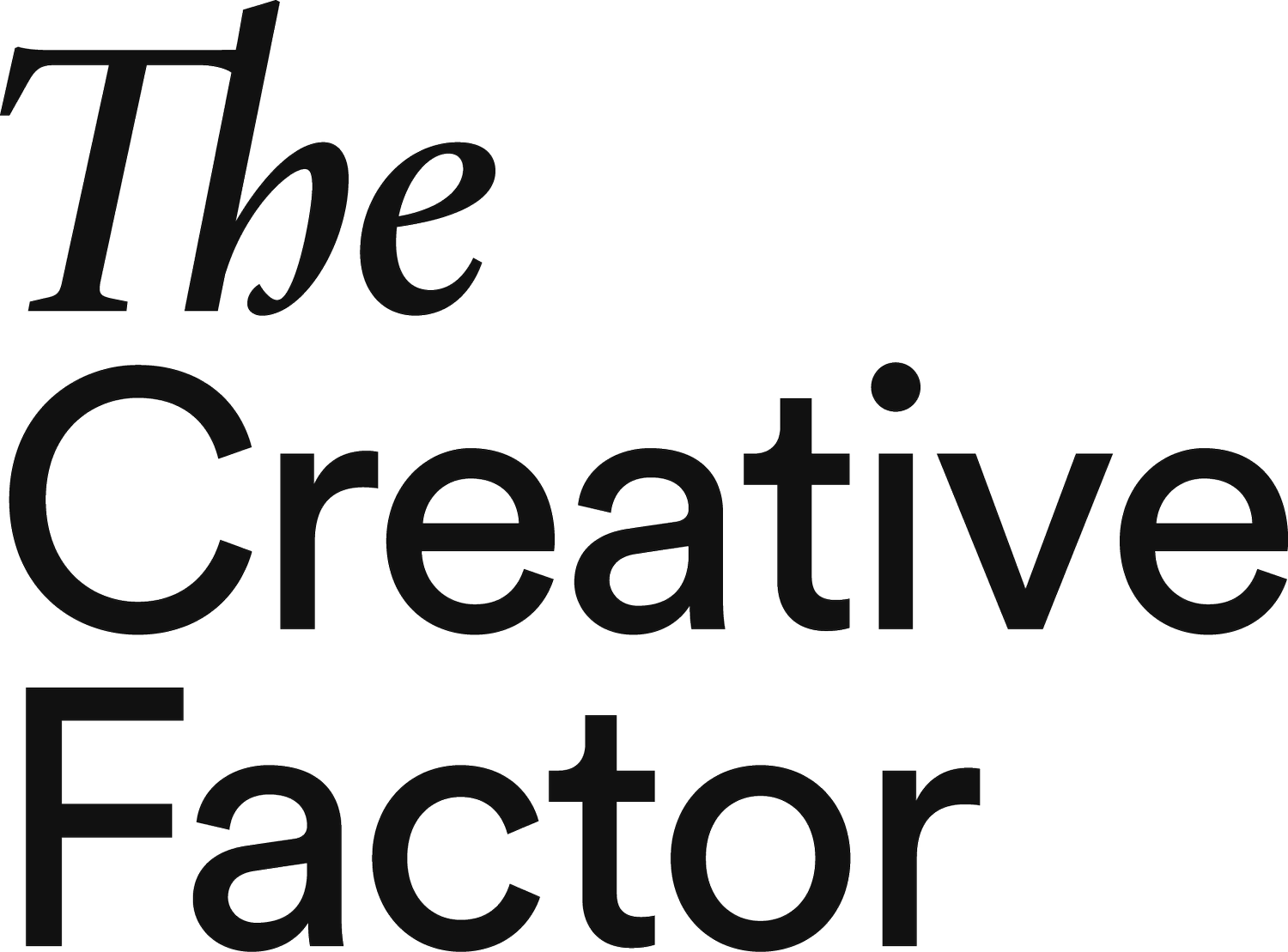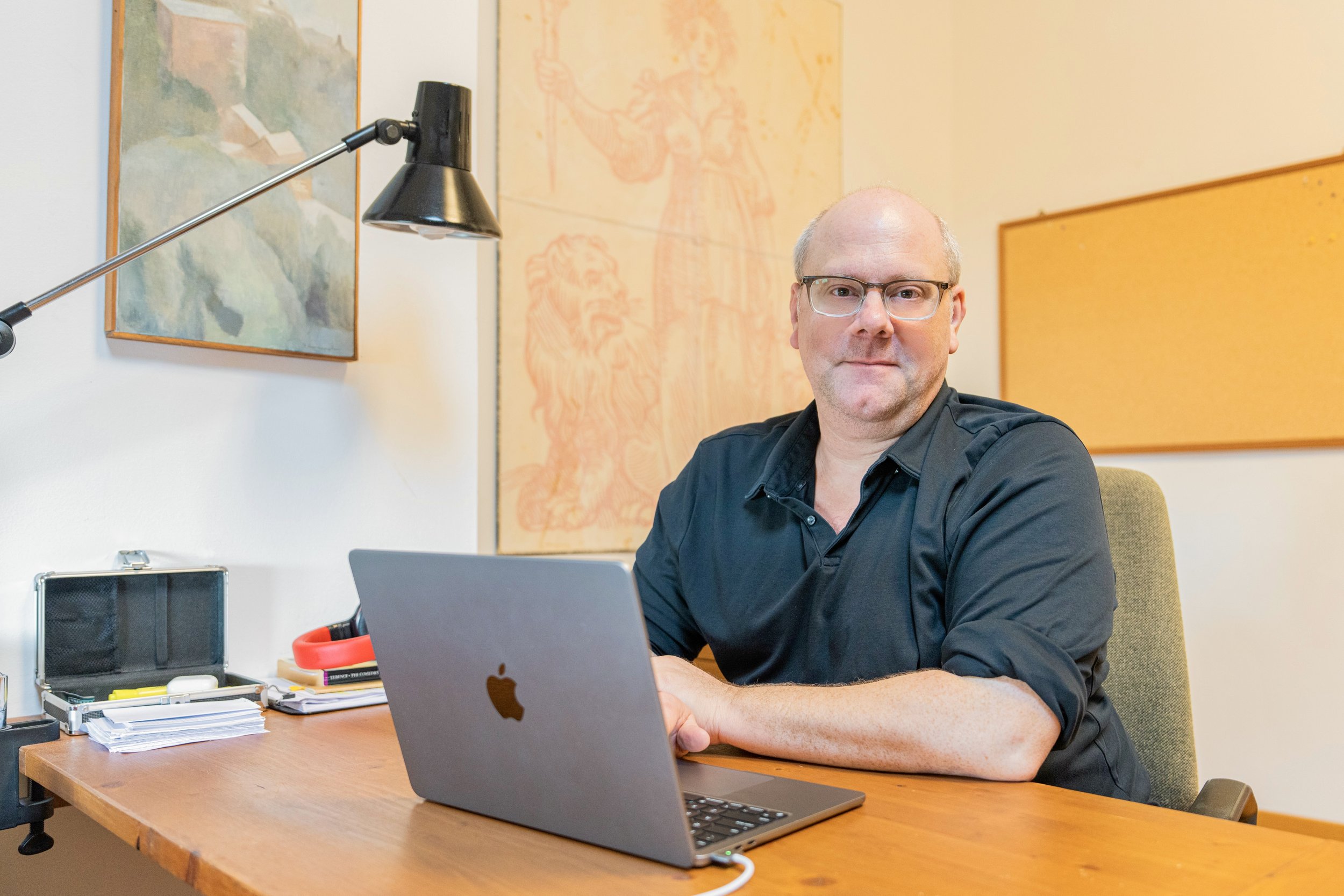Creating Opera with David Cote, Librettist
David Cote’s “Dorothy” moment is when the libretto becomes the music. Photo by Laura Bianchi.
For nearly two decades, David Cote was theater editor and chief drama critic at Time Out New York, reviewing plays and musicals and recommending events to his readers. Until, at a certain point, the publishing world completely changed and he realized he needed to detach himself from the media company and reinvent himself as a storyteller.
In his most recent career chapter, Cote recast himself as a playwright and opera librettist, writing on subjects ranging from the mysterious connection between music and memory, to true stories of wrongful conviction and exoneration, to the extraordinary life and activism of Paul Robeson.
Much like the rhythms of his operas, Cote’s career path ebbs and flows, but there are clear threads that connect the chapters. Whether he is crafting an article, writing a play, or creating a storytelling framework that inspires the music to follow, his creative process starts when a story speaks to him. Here, Cote shares the process behind how he turns stories into sound, beginning with his brainstorming sessions all the way up to the moment where the music steps from a black-and-white page into a Technicolor world.
A production shot of Blind Injustice, by Cote and composer Scott Davenport Richards, produced by Peak Performances earlier this year. Photo by Jennifer Liseo. ID: From left: Samuel Levine, Reilly Nelson, and music director Ted Sperling, bottom.
Careers are less of straight lines and more of an evolution. You started out in your career as a theater critic but recently transitioned to playwriting and opera librettos. How did you reinvent yourself and your career path?
I had a composer friend named Stefan Weisman who created operas, and we saw David Lang and Mac Wellman’s the difficulty of crossing a field together at Peak Performances in 2006. It was a weird, surreal, absurdist story about a plantation in the South, set in pre-Civil War times. The story is that a plantation owner is crossing a field and he disappears, and nobody knows what happened to him. And I thought, Wow, this is a strange text with beautiful music and electrifying theater… I want to do that. To be perfectly honest, I thought that writing an opera libretto would be like writing a play, but with training wheels because the music has to support it.
What is the biggest difference between writing plays and operas?
When writing a play, you have so much freedom to try things out and fail, see what’s working before a live preview audience. You can scrap entire scenes and rewrite them. As an opera maker, you have to get as much development time in as you can with your colleagues to make sure you have the best libretto possible. Stephen Sondheim was asked, “Why don’t you do opera?” And he said, “Do you know how many previews opera has?” The answer is one, and that’s opening night. With musicals, there are so many moving parts, and they’re so hard to get right that the team tends to have three or four weeks of previews where they iron out the kinks before opening night. Whereas making an opera is like this cumbersome machine that comes together, and then gets wheeled out in front of the public, and hopefully it works. Also, plays tend to be a little more personal. I’ve done lots of “issue operas” about topics like wrongful convictions, music therapy, and dementia. But plays tend to be a way for me to work out my personal stuff.
How do you begin making an opera?
A composer and I get fired up about a subject that has the scope and emotional intensity that makes it more than a play, more than a musical — something that has to sing as an opera. Then, we agree on the plot, duration (how many acts and scenes), characters, and overall tone. Then I go off and wait for the characters to talk to me.
How do you translate the outline of a story into a libretto?
Plots in opera are generally not super complicated (Betrayal! Murder! Redemption!). As for the dialogue (traditionally known as recitative) and monologues (arias), it shouldn’t be overly wordy. Libretto writing isn’t the same as playwriting or screenwriting, but it uses the same storytelling muscles. Like poetry, it’s an art of concision and reduction, yet it’s not poetry. You may write lyrics to a song in the opera, but it’s not the same as making a musical number for a Broadway show. A libretto gives the composer a framework and inspires their music. The music of the words gets translated into the music itself. I often use poetry-like line breaks across the page to suggest alternating sung lines, as with a duet or trio, or to show where a thought ends and another begins.
You’ve got your draft; now what?
I find that the best composers are excellent editors. My collaborator will read the draft and make suggestions or request tweaks for clarity. One must be flexible in a collaboration. If you think your libretto is a poetic masterpiece carved in stone, you will run into problems. The composer may indicate where music can carry a thought or emotion, allowing me to trim verbiage. A libretto reading with actors (not necessarily singers) is a great way to hear if dramatic stakes and character nuances are coming across. Libretto readings may be a touch awkward — the language can sound rather bare and terse — but they help in distilling the text to its essence. The librettist always holds space for music.
Then the composer sets it?
This is where the magic happens. I’m always astounded and delighted by what the composer pulls out of the words (and the space around the words). They may play you a scene or sing a section, so you can respond with your own suggestions. By the time they start setting it, you both have a sense of overall tone and tempo: an aria of loss and lamentation won’t be a jaunty, up-tempo number. (Unless the desired effect is bitterly ironic.) Still, for me, when the music arrives, it’s like the moment in The Wizard of Oz when black-and-white Dorothy steps into a Technicolor world. There are a thousand other steps that happen before opening night: orchestrating the score for three — or 33 — instruments, workshops, designer sketches, and staging rehearsals.
What draws you to this type of work?
Growing up in New Hampshire, expressing myself through language was like therapy for me. People in New England can be a little shut down, a little inexpressive. Emotionally, it was very important for me to use language to clarify reality as much as possible. The downside is that you can become a person who uses language to keep reality contained, keep it at a distance, where you try to control people and your own emotions. So the danger of being obsessed with language is that it can become a substitution for feeling.
You mentioned that you wait for the voices of the characters to speak to you before you begin the writing phase. Who do those voices belong to?
I see myself, or at least part of myself, in almost every character I write. I often think that a writer can be a very generous narcissist, in the sense that it’s all about them. Writers can be self-obsessed, filtering themselves into mouthpieces or characters. But hopefully it’s a little more organic and unconscious than that. An opera composer will often come to me with a subject they want to explore, say, a glaciologist who is giving a lecture about ice loss in Greenland. And then she starts to have her own inner transformation because a colleague of hers recently died on the ice during an expedition due to climate change. So she’s grieving, which means I have to insert my personal experience with grief into that character. You put yourself in your work, wherever it fits — even if the subject matter is not really about you at all.
As a creator, how do you play a role in the process of telling someone else’s story?
I find that there’s a pattern in my work, one that I need to either really explore or break, and that is an older man trying to get through to a younger person. The older man is regretful and full of an acute sense of his own weakness and failure, and the younger person is extremely distant, emotionally, and cut off. And I think that there’s something about that, where it’s me probably feeling old or older and trying to talk back to myself, when I was emotionally underdeveloped and rather cold. I feel like I’m aging backwards, you know.
What’s your advice for creative professionals looking to reinvent themselves, as you did when you took the leap from theater criticism to opera/playwriting?
I started as an artist, veered into journalism and theater reviewing, and I’ve been balancing my creative and critical brain ever since. After I left Time Out New York, I was able to find regular freelance work, but it’s still a struggle. I mean, neither artist nor journalist is a sustainable career! Barely one percent of opera librettists can make a living at it, and full-time arts coverage jobs have been disappearing for years. Even academia is a poor Plan B (or C?), unless you want to adjunct. Still, not to sound all doom and gloom: If you love the arts — whether it’s theater or music or visual arts or movies — you want to get your voice and face out there talking about it. Study critics who have experience in your field, and see how they build an argument and make the process of analyzing art surprising and entertaining. Social media is the way to self-publish, plus your own site. Use the best platform to post images and video, and link to writing (Substack or something else). If there can be influencers for fashion, technology and food, why not art? Share your passion and build an audience. It could even result in a job in the real world.
If you’d like to read more from Creative Factor, find our latest stories here. Or looking to tell your brand story? Introducing Creative Factor’s Storytelling Studio.


